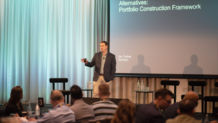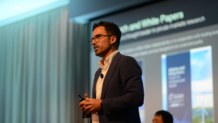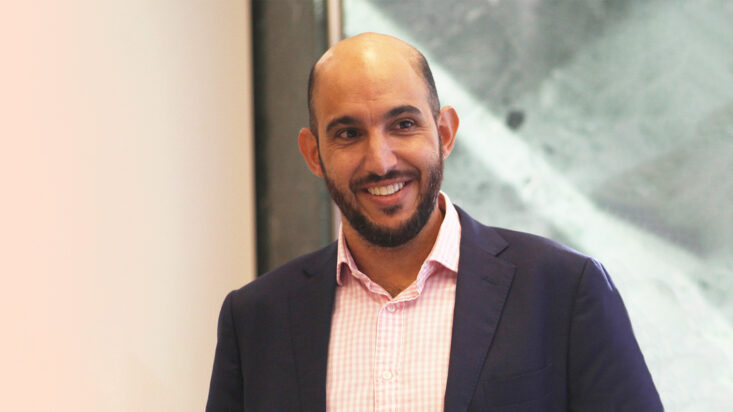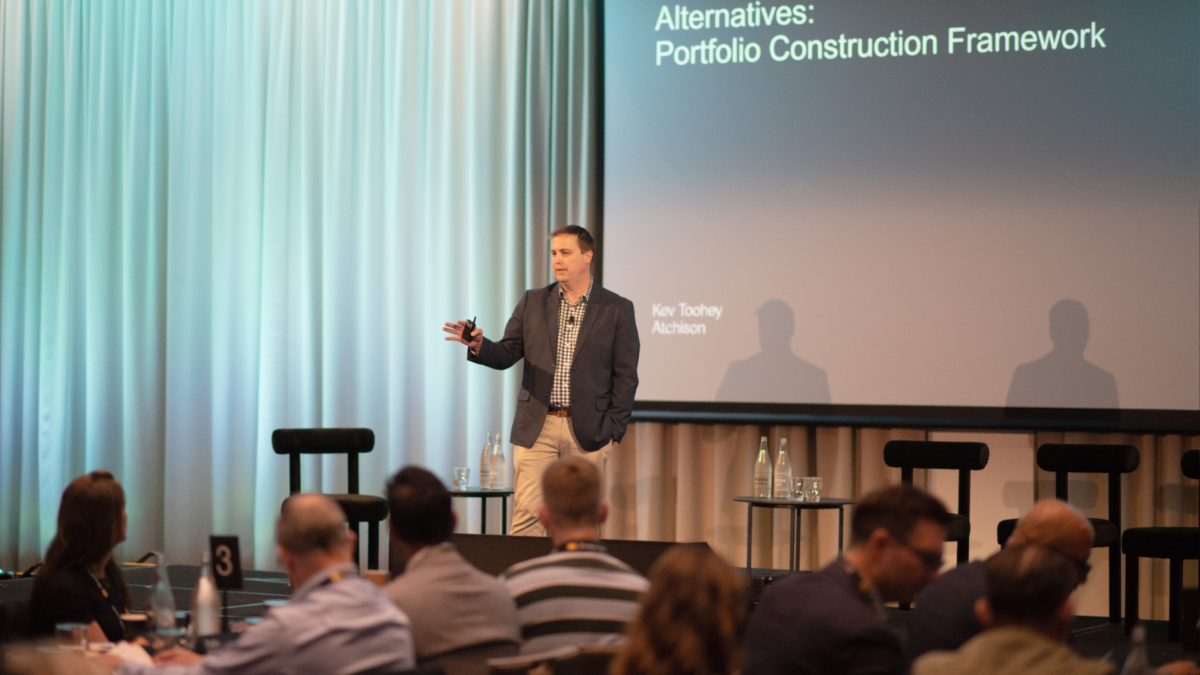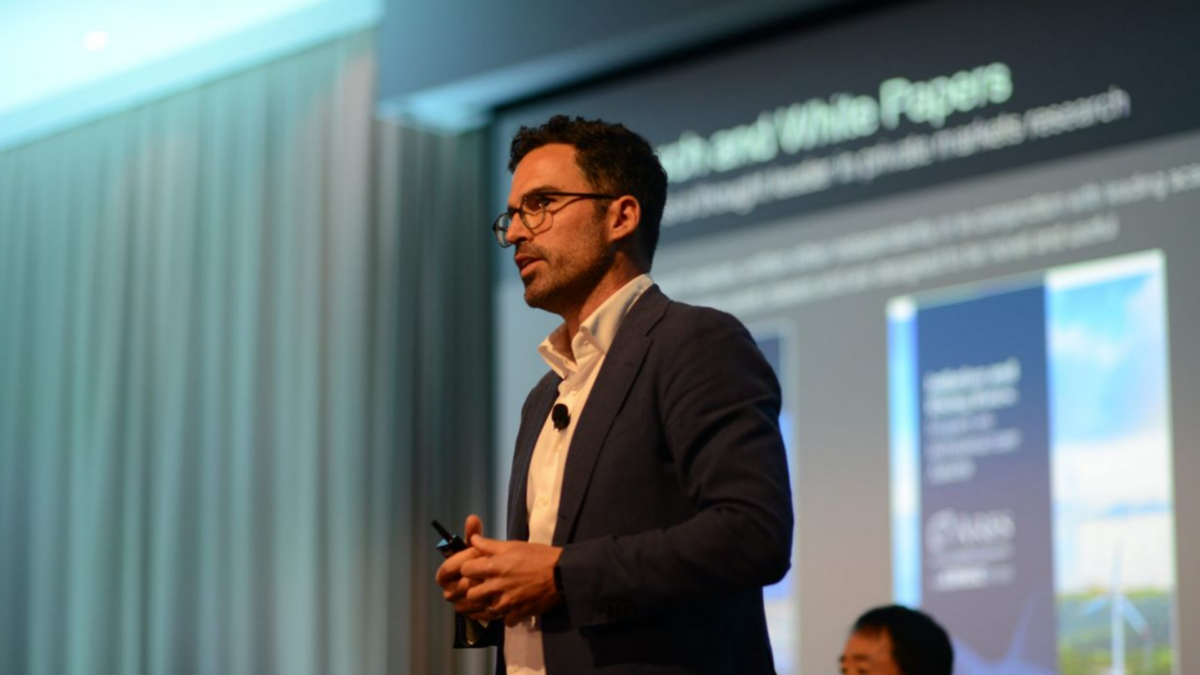Fine fleece to financial planning: The advice journey of Invest Blue CEO David Stephen
Affable Invest Blue boss David Stephen reckons his Dad had a firm hand in his early career path.
As what he calls a “precocious 20-year old”, Stephen was at a crossroads. He could either accept an offer to learn paraplanning at AMP, or join his father working on the family’s wool farm. At the time, the farm was the largest producer of superfine wool in the world, supplying to Italian fashion houses Armani and Ermenegildo Zegna.
To give him a taste for the farming life, Stephen’s father sent him to a neighbour who offered him $400 per week in wages, with $200 of that quarantined by his employer for rent and bills.
He declined, and headed straight into a career in financial advice.
“I’m pretty sure my Dad had a hand in the whole thing,” he tells The Inside Adviser. “I was going to be a wool baron, until I very quickly wasn’t.”
Egos at the door
Shortly thereafter Stephen came to Invest Blue in Armidale, which was in 2001 a business of six people including founder Paul Haslam and partner Steve Sewell. The two, would become mentors, sold Stephen on the idea of shared ownership.
“Paul always talked about having a small piece of the big pot,” Stephen recalls. “If you can build a business where everyone puts their ego at the door, what you can achieve together is more than anyone can achieve on their own. And for a relatively egotistical 20-year old that was really inspiring, to be honest.”
The young adviser was ambitious, but he was also pragmatic. He recognised the value of having skin in the game.
“It was back in the day where everyone had their own book, and you didn’t share clients,” he continues. “But Paul was quite visionary in saying that if you want to build a true business, everything goes in together and we all share in the outcome.”
Today Invest Blue has 35 practices and 480 staff – 90 of whom are shareholders in the business.
Pictures in the brochure
While shared ownership is a core element of the Invest Blue cohort, it’s not their big thing.
What drives the business, Stephen says, is trust.
Invest Blue is more bread and butter than silver spoon, with its practices based in areas like Kempsey, Grafton, Rockhampton and Toowoomba. You won’t find its offices in Sydney city; instead you’ll find them in suburbs like Baulkham Hills, Penrith and Camden.
Clients in regional and suburban areas place a premium on relationships, Stephen says, and those relationships are founded on trust. Those clients aren’t at the HNW end of the spectrum, but with regional Australia experiencing a resurgence in the three years since the drought broke there’s enough capital in the client base to fund Invest Blue’s own tremendous growth.
“In little towns like Armidale, Gladstone and Tamworth land prices have just gone through the roof,” he says. “You do get a lot of people that you’ve been working with for 10 or 15 years and they’ve scraping by, but then they sell a farm for $10 million.”
The focus on trust is a big reason why the group is on the far end of the disclosure spectrum in advice. While a lot of providers refrain from providing any cost details on their website, Invest Blue have a clear breakdown of the upfront and ongoing fees, the nature of the service and the level of advice professional who will provide it.
Similarly, while some advice groups don’t like advertising their cheap labour force in South-East Asia, Invest Blue is proud of their colleagues in Cebu, Philippines.
“You’ve got to double down on trust and disclosure if you want to grow in our space,” Stephen says. “When people visit our website they’ll see our fees, and when people come into our office in Armidale they’ll see pictures of our Cebu workers in our brochure alongside their stories.”
The power of advice
While the Quality of Advice Review has put forward a proposal that aims to give more people access to advice, firms like Invest Blue that cater to the lower end of the holistic advice market are on the front line.
Stephen believes review lead Michelle Levy did a “phenomenal job” analysing the entire advice chain, and appreciating that registered, holistic advisers can’t be the be-all and end-all of advice provision.
“I think Levy was really good at acknowledging that to make advice accessible, you do need to have a model that allows for the mass market to get small pieces of episodic advice,” he says. “I don’t necessarily think that is the remit of the holistic financial planner.”
What Stephen says the group will do is focus on taking care of more clients that were left orphaned by banks in the wake of the Hayne Royal Commission.
“That outcome was fundamentally disappointing, so many of these people in regional areas were left without advice,” he says. “Now it was the right thing to happen. Don’t get me wrong – in a lot of ways, it was exactly what this industry needed – but I’m really passionate about the power of advice.”

